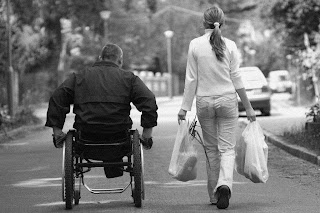In some lands certain kinds of insurance are compulsory. In others, most kinds are practically unknown. In addition, the cost of insurance and the type of coverage provided vary widely from country to country. But the fundamental principle of insurance—sharing risk—remains the same.
Naturally, the more property a person owns, the more he has to lose. Similarly, the more family responsibility a person has, the greater the impact if he or she dies or becomes physically disabled. Having insurance can alleviate one’s concern about the possibility of suffering a loss of property or a disabling accident.
Yet, is it wise to spend money on insurance even though a claim may never be made? Well, is keeping a spare tire in the car a wasted investment, even if the tire is never needed? The sense of security to the car driver may make the expense of the extra tire worthwhile. While financial compensation cannot make up for certain losses, it may compensate for other losses.
What types of loss do insurance policies cover?
Types of Insurance
Much of the insurance purchased by individuals falls into the categories of property, liability, health, disability, and life insurance.
Property insurance: Insuring against the loss of property—home, business, car, or other possessions—is among the most common forms of risk management. This is the insurance that John, mentioned in the preceding article, decided not to buy for his carpentry shop and tools.
Some home-insurance policies include coverage of certain items inside the home. If you buy this type, it is wise to make an inventory of your insured household possessions, if possible including photographs or a videotape. This inventory along with any appraisals or purchase receipts for the items should be kept in a safe location outside the home. Having these records could make settling a claim much easier.
Liability insurance: Anyone who drives a car, owns a home or other real estate, operates a business, or employs others runs the risk of liability for an accident. And that accident may result in property damage or injury or death to another person. The car driver or the owner of property or a business may become liable to pay for property repair or for the medical treatment or even the pain and suffering of another. In many countries employers and drivers are required by law to carry liability insurance to help pay these expenses. Even where insurance is not a legal requirement, a driver, property owner, or employer may be held legally or morally responsible to help victims of an accident or their families.
Health insurance: Many countries have some form of state-sponsored insurance that provides such benefits as pensions for seniors and medical care. Even where this is the case, however, such insurance may pay only a portion of medical expenses or may pay for only certain ones. Some individuals, therefore, obtain additional private insurance to help them pay the remainder. In many places workers may receive health insurance as a condition of their employment.
Some health-care plans, including managed care arrangements and health maintenance organizations (HMOs), provide comprehensive medical care for a set monthly or annual fee. These organizations endeavor to lower costs by providing less-expensive medical care and by promoting preventive medicine. However, in an HMO, a patient’s choice of doctors or treatment may be more limited than with traditional health insurance.
Disability insurance and life insurance: Disability insurance provides some income if a person is injured and cannot work. Life insurance provides financial assistance to a person’s dependents in case of his or her death. Such insurance has enabled many families to pay off outstanding debts and carry on their routine of life after the injury or the death of their main breadwinner.
Finding Reliable Insurers
Insurance is based on the principle of paying money now for financial protection in the future, so it is not surprising that the insurance industry attracts more than its share of swindlers. This is true in developed as well as developing economies. Therefore, one is wise to beware of so-called low-cost insurance and to be alert to any other questionable insurance scheme. Too many hopeful buyers have ended up with nothing when such companies failed to pay on their policies—or just vanished overnight!
So, as with any other important purchase, comparison shopping is wise, and it often saves money. For instance, some companies offer lower rates on health insurance to nonsmokers and on car insurance to those who have passed driver-education courses. But how can a potential buyer find reliable insurance?
A first step can be to find out what others have experienced with various insurance companies and agents. Friends and neighbors may know a company’s reputation for service or an agent’s reputation for integrity and personal concern. It is also good to stay alert to news reports indicating which insurance companies may be having problems.
Additionally, a company’s record and financial standing may be checked by consulting insurance rating guides at a library or a bookstore or on the Internet. These can provide the answers to such questions as: Is the company financially secure? Has it been in business successfully for many years? Is it known for handling claims quickly and amicably?
Insurance rating guides, however, should not be considered infallible. One long-established, multibillion-dollar insurance company had to be taken over by the government only one week after it had been rated as superior in a well-known handbook!


 7:26 PM
7:26 PM
 Hmm
Hmm






 Posted in:
Posted in: 









0 comments:
Post a Comment